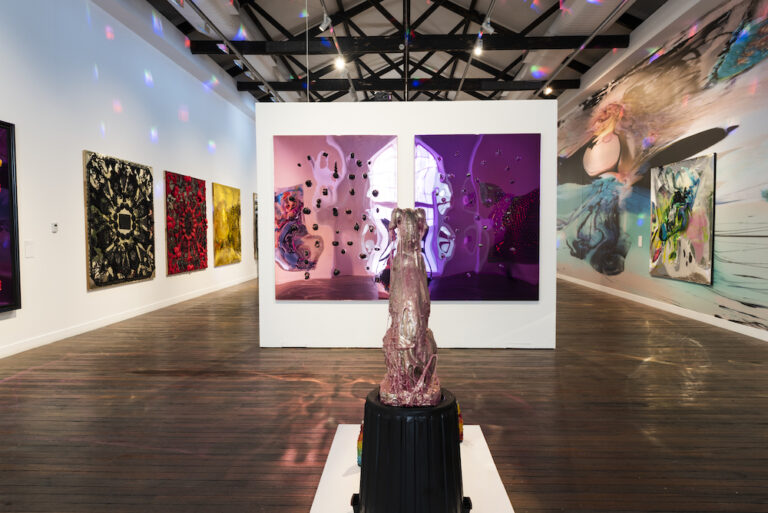
Late night Sydney loosens its bonds

By Sarah McLenaghan
Since the inception of the NSW lockout laws in 2014 there have been growing calls for a revitalisation of Sydney’s nightlife.
Last week, City of Sydney responded to these demands with a proposal for some of the most drastic changes to City planning and development across Sydney in decades.
Lord Mayor Clover Moore said: “More than 10,000 people gave us their feedback and the overwhelming majority said they want Sydney to have a diverse and exciting night-time economy with events and activities for people of all ages and interests.
“What they do not want is a city that is unsafe or that shuts down as soon as the sun goes down.”
The changes form part of the City of Sydney’s draft late night development control plan which took on feedback from a review of the planning controls that determine where and when night-time activity can take place in Sydney.
An overwhelming 95% of responses were in favour of later hours, more diverse late night activity, and nightlife options closer to home.
One of the major changes this plan proposes is the establishment of a 24 hour city centre. This will be a zone stretching from Darling Harbour in the west to Hyde Park in the east and Central Station in the south, where businesses can trade 24 hours a day.
“This is important because Sydney’s night-time economy is critical to our city’s future, employing over 35,000 people and worth more than $4 billion to the NSW economy each year,” said Lord Mayor.
The plan would also allow shops, businesses and low-impact food and drink venues on high streets to trade until 2am, provided that entry and exit to the venue was from a main street.
While lockout laws will continue to apply, Kings Cross will benefit from a minor extension of the Kings Cross local centre area to include the west side of Llankelly Place north to Orwell Street, which is currently excluded from the late-night trading area.
Sydney Business Chamber Executive Director, Patricia Forsythe, is optimistic about the impact this proposal could have on businesses across the region.
“Business has not had flexibility to make changes because of the controls around how they’re allowed to operate. So, you take the example of a major event like Vivid where there’s very different numbers of people on the street each night.
“Business has not been able to take real advantage of that simply because of the regulations under which they operate.”
Forsythe believes the proposal will help eliminate this issue: “What the city is doing is putting a lot of responsibility back on business to determine what’s in their best interest and it doesn’t mean all businesses open all of the time, but it does mean that they can be flexible and respond to changes.”
However, City of Sydney Councillor and small business proponent Angela Vithoulkas says that the premise of extended late night cultural and entertainment precincts is a good one in theory, but less ideal in practice.
“The proposal aims to revitalise the city precinct with 24-hour trading, however this is off the back of consumer polling and not small business surveys.”
Ms Vithoulkas raised concerns over the potential for the change to open the door for landlords to enforce 24-hour trading as part of a tenant’s lease which will be unsustainable for small businesses.
“Many small businesses will be unable to meet the requirements of a 24-hour city, with penalty rates and staff costs alone enough to cause serious damage to profitability.
“As some small business owners have stated, people generally aren’t in the market for books and shoes at 3am.”
A spokesperson for the Lord Mayor assured that any such concerns would be considered through the Council’s extensive consultation process for the draft plan.
This will involve considerable consultation with the experts in the Nightlife and Creative Sector Advisory Panel, before a public exhibition for community feedback.
Besides the establishment of a 24 hour precinct, the proposal will see the development of new late-night trading areas in some of the city’s fastest-growing neighbourhoods, such as Barangaroo and Green Square and a new cultural precinct in an industrial part of Alexandria.
Ms Forsythe said that the adaptive reuse of existing buildings in Alexandria was a terrific concept.
“It still allows a little bit of the authentic history of the city but does show people that there are a variety of uses for buildings that can meet the standards and can meet community needs.”
Sydney’s entertainment industry will also benefit from the provision of an additional trading hour at closing time for all dedicated performance venues.
CEO of Sydney Fringe Festival and co-chair of the City’s nightlife and creative sector advisory panel, Kerri Glasscock, welcomed the proposals: “It’s wonderful to see a local council proposing changes that actively encourage diverse and unique offerings not only in the CBD but on our village high streets.
“Sydney is an incredible city, filled with wonderful voices, and it is imperative we enable it to reach its potential as one of the great cities of the world through supportive policy like this.”









